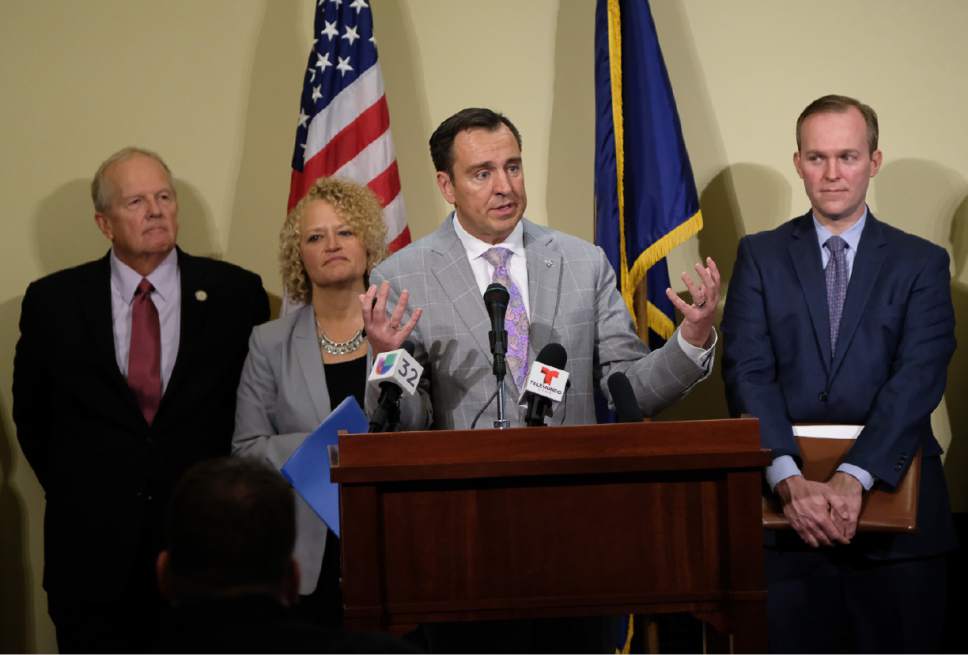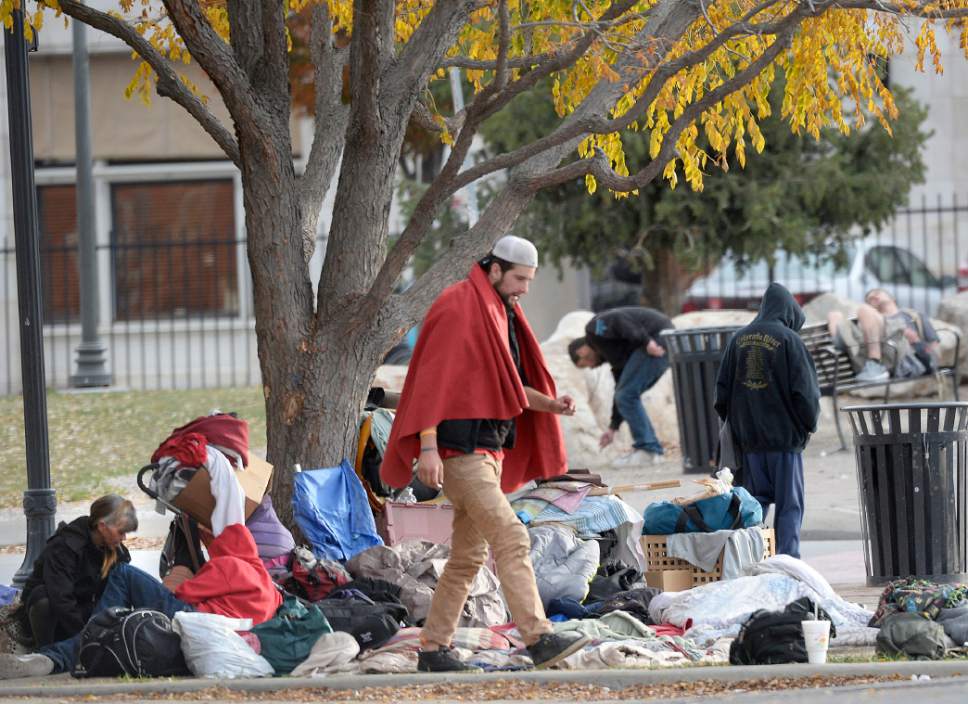This is an archived article that was published on sltrib.com in 2017, and information in the article may be outdated. It is provided only for personal research purposes and may not be reprinted.
From House Speaker Greg Hughes' opening remarks about a "homelessness crisis," lawmakers waged an all-fronts attack on what they perceived to be the condition's root causes.
Homelessness was "one of the biggest issues, if not the biggest, this session," Senate President Wayne Niederhauser said Thursday after passage of Majority Whip Francis Gibson's keystone funding bill. Other successful legislation would bolster state funds for affordable housing and behavioral health and substance-abuse treatment, bar city programs that discourage renting to ex-convicts and request a study of child homelessness.
Gibson's HB441 would complete the state's role in financing three shelters that are counted upon to reduce demand for overall emergency beds by directing homeless people toward housing and services. The state has committed $27 million to the effort.
Longtime homeless advocate Pamela Atkinson said it was an "exciting" 45 days: "Our legislators seem to have grasped that there's a multiplicity of problems causing homelessness and there are a multiplicity of solutions."
This year's debates frequently invoked the 1,100-bed shelter at 210 S. Rio Grande St. in Salt Lake City, conjuring the lawlessness and chaos that spurred city, county and state leaders to rethink their homelessness approach in early 2015.
Those leaders heralded a surprise course change last month: Salt Lake City would host two shelters, not four, and Salt Lake County would site a third shelter by the end of March. They also set June 30, 2019, as what Hughes termed a "hard close date" for the shelter at 210 S. Rio Grande.
Salt Lake County Mayor Ben McAdams had previously opposed cementing that commitment until the demand for beds had been sufficiently reduced, but he said the session was a "historic success."
"Future generations will look back on what we did this session as an example of our entire state rallying together to help the most vulnerable among us."
Related legislation included:
HB36 (Rep. Becky Edwards, R-North Salt Lake) • Lawmakers approved $4 million to close a gap in rental units for low-income families estimated at more than 38,000. Among the bill's provisions are increased state income-tax credits for landlords and a loan fund for affordable housing developers.
HB178 (Rep. Brian King, D-Salt Lake City) • Cities would no longer be able to require that residential landlords deny tenancy based on a person's criminal history — except Ogden and West Valley, exempted because they operate halfway houses
HB283 (Rep. Robert Spendlove, R-Sandy) • An existing state program would be able to provide cash assistance to keep families with children in housing, and a state task force on intergenerational poverty would add child homelessness to its study.
SB2 (Sen. Jerry Stevenson, R-Layton) • Lawmakers earmarked $2.8 million for state counties to provide up to 300 beds for Salt Lake County offenders, who currently aren't booked for non-felony crimes because of limited space at the Salt Lake County jail.
Not every bill tied to homelessness was successful.
The Senate didn't act on Salt Lake City Rep. Joel Briscoe's penalty enhancements for drug dealing near shelters.
And Rep. Steve Eliason, R-Sandy, had Hughes' promotion but not committee backing on his idea to collect county property taxes that would both fund shelter services and reimburse municipalities with large shelters.
Utah's government-funded homeless services reported 13,614 clients in 2016, up 11 percent from two years earlier — but that number may also reflect an increase in available services.
An annual U.S. Department of Housing and Urban Development count that measures the homeless population on a given night showed a 9 percent reduction over the same period.
Twitter: @matthew_piper





